“We are committed to bringing power to as many people as possible in Haiti. I am confident that our deployment model will allow us to reach many communities in the shortest possible time frame.” - Driko Ducasse, Founder & CEO - Alina Eneji
Introduction
Alina Eneji, founded by Haitian entrepreneur Driko Ducasse, stands as Haiti’s first mesh-grid development project dedicated to delivering affordable, clean electricity to underserved communities. Alina started with a pilot of 95 households—installed in 7 days by a 16-person team. Since then, we’ve worked with Alina to rapidly improve the deployment model for their scale-up projects. By refining their process, they now reach up to 30 households per day with a lean team of 4–5, achieving a sixfold increase in efficiency. This acceleration has enabled them to scale to over 4,000 households, even amid Haiti’s ongoing political challenges and gang violence. This deployment process now stands as a model that demonstrates how quickly communities can be electrified, both in Haiti and potentially in Nigeria, while also offering jobs and technical training to local staff.
.jpg)
The Challenge
Driko first reached out to Okra in 2021, having always been interested in electrifying his home town in Marchand. That same year Driko funded a pilot project with his own funds in Marchand Dessaline, his hometown. In their early deployments of Okra mesh-grids, Driko’s company, Alina Eneji, installed around 95 households at a rate of 13 households per day using a 16-person team for a rate of 0.8 households per person per day. This model worked for smaller projects in the hundreds of households, but it quickly became clear that it would not scale effectively to thousands. It relied on non-local labor and evolving technical expertise that added both cost and complexity.
Alina Eneji’s Solution
Alina Eneji currently has been carrying out installations in four cities: Marchand Dessalines, Plaisance, Gonaïves, and Anse Rouge. Realizing the need for a more efficient process, Alina Eneji set out to streamline installations, and along the way build local capacity and substantially reduce field time. It now works as follows: prior to installation, training sessions are conducted in Gonaïves for contractors from all four cities. This initiative built local trust and streamlined logistics compared to conducting training in all 4 cities. As installations progressed, the need to relocate contractors was eliminated, as trained local teams were available in each region to train more installers, further reducing logistical costs.
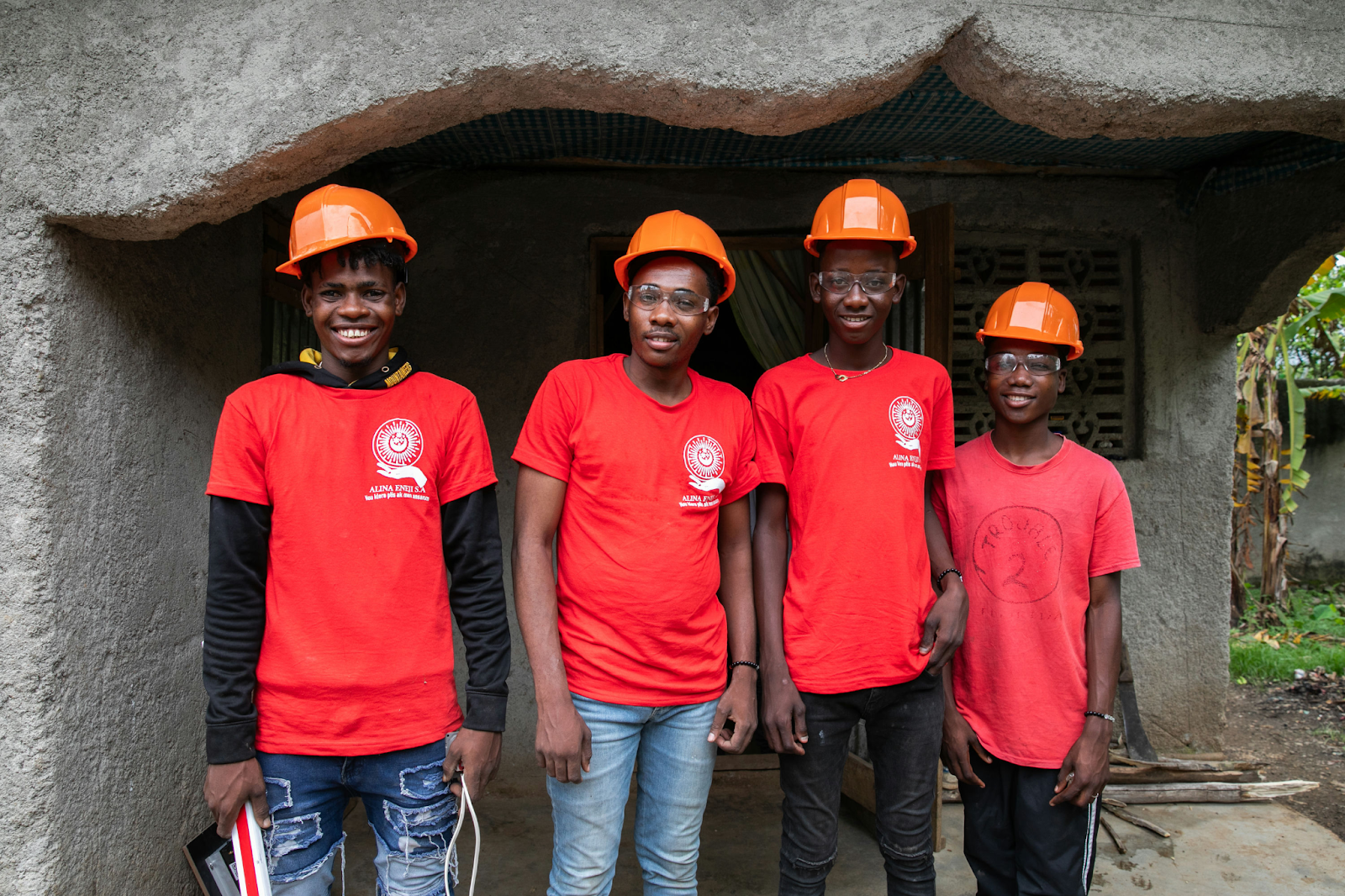
Alina Eneji also established a warehouse system to pre-assemble the mesh grid components (Pods, batteries, and other hardware), significantly reducing field installation times. Previously, all components were assembled on-site, a process that was both time-consuming and labor-intensive. By shifting to a centralized pre-assembly model, the company streamlined operations, ensuring that installation crews could focus primarily on deployment rather than assembly. This also improved quality control, as components were tested and standardized in the warehouse before reaching the installation sites. Additionally, the warehouse system optimized inventory management, reducing delays caused by missing or faulty parts.
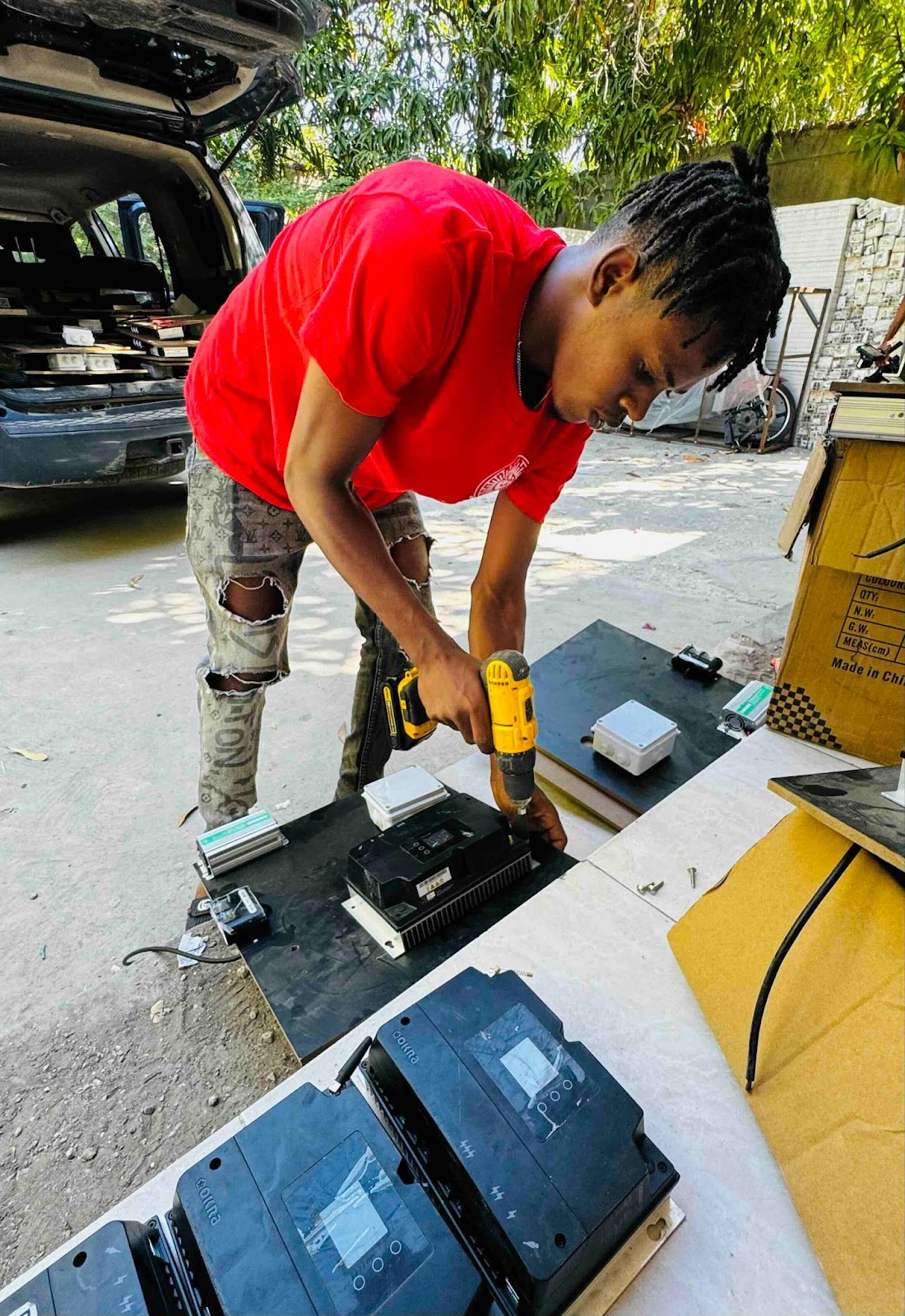
Much of this assembly work was now being done at the warehouse rather than on-site.
In the field, Alina Eneji restructured its installation teams, assembling a crew of five to six technicians each, plus a team lead across multiple groups. Under the revised framework, each installation team is divided into three specialized sub-groups:
- Solar Panel Installation: The first sub-group, consisting of two technicians, is responsible for mounting and securing solar panels.
- Hub Installation: The second sub-group, led by one technician with occasional support, focuses on installing the Hub - the central connection point for batteries and Sprouts.
- Spokes & Wiring: The third sub-group manages the installation of Spokes and handles the wiring required to connect switches and light bulbs.
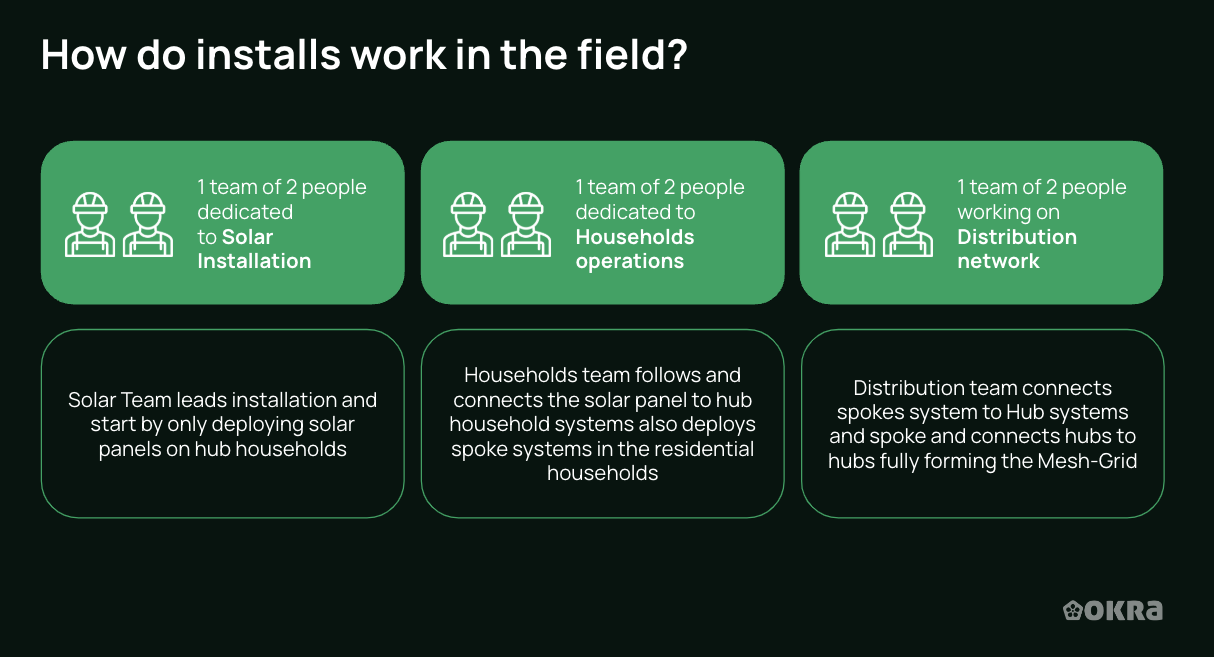
This division of labor allows tasks to be completed in parallel, reducing delays and ensuring that project timelines stay on track. As a result, each team can now install up to three Hubs per day. Since each Hub supports six to seven Spokes, this translates to servicing 18 to 23 households daily. When additional capacity is needed, more teams can be deployed. To maintain consistency and quality across all sub-groups, an experienced lead supervises the entire operation.
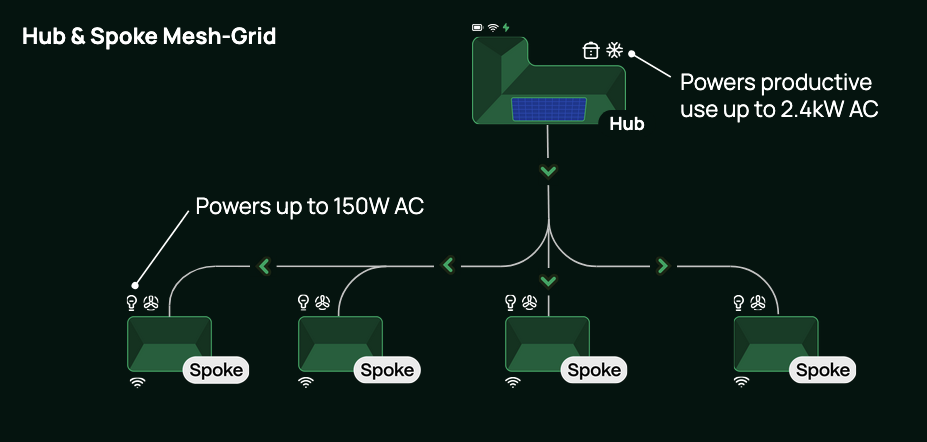

This new approach marks a dramatic improvement over Alina Eneji’s previous installation rate of just 5 households per day. Previously, the lack of task specialization and a disorganized workflow meant that all team members worked on a single task at a time, limiting overall efficiency. Additionally, the absence of a lead supervisor often led to installation issues and inconsistencies.
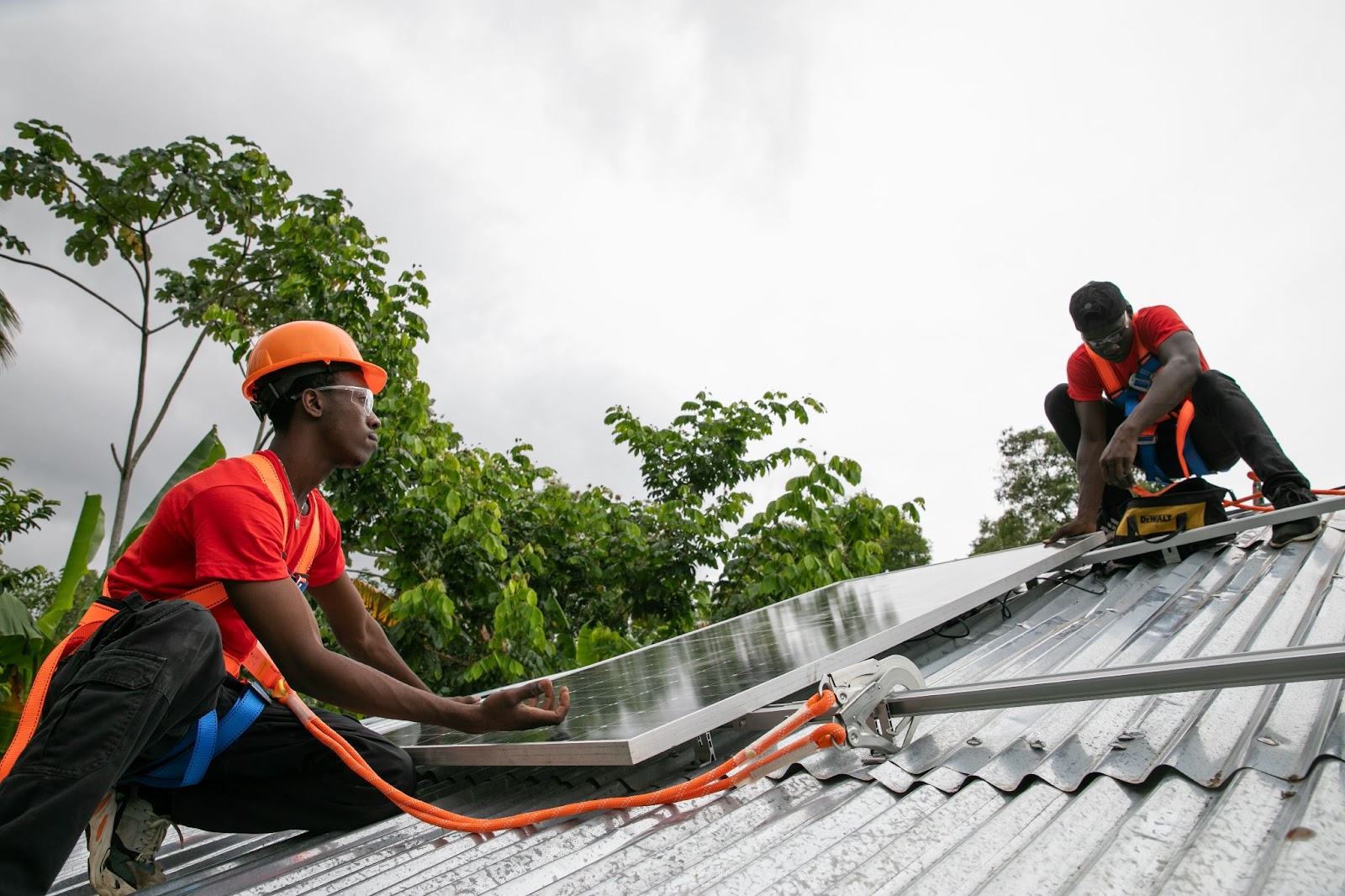
Project outcome & benefits to Customer
Alina Eneji's current installation process developed with Okra has allowed them to achieve a peak of 53 households on certain days. This streamlined approach also generates stable and technically skilled employment opportunities for the local youth population.
As of December 2024, a total of 30 young contractors, with an average age of 24, have been successfully employed through this initiative. This focus on local talent and capacity building ensures that the benefits of the project are deeply rooted within the community.
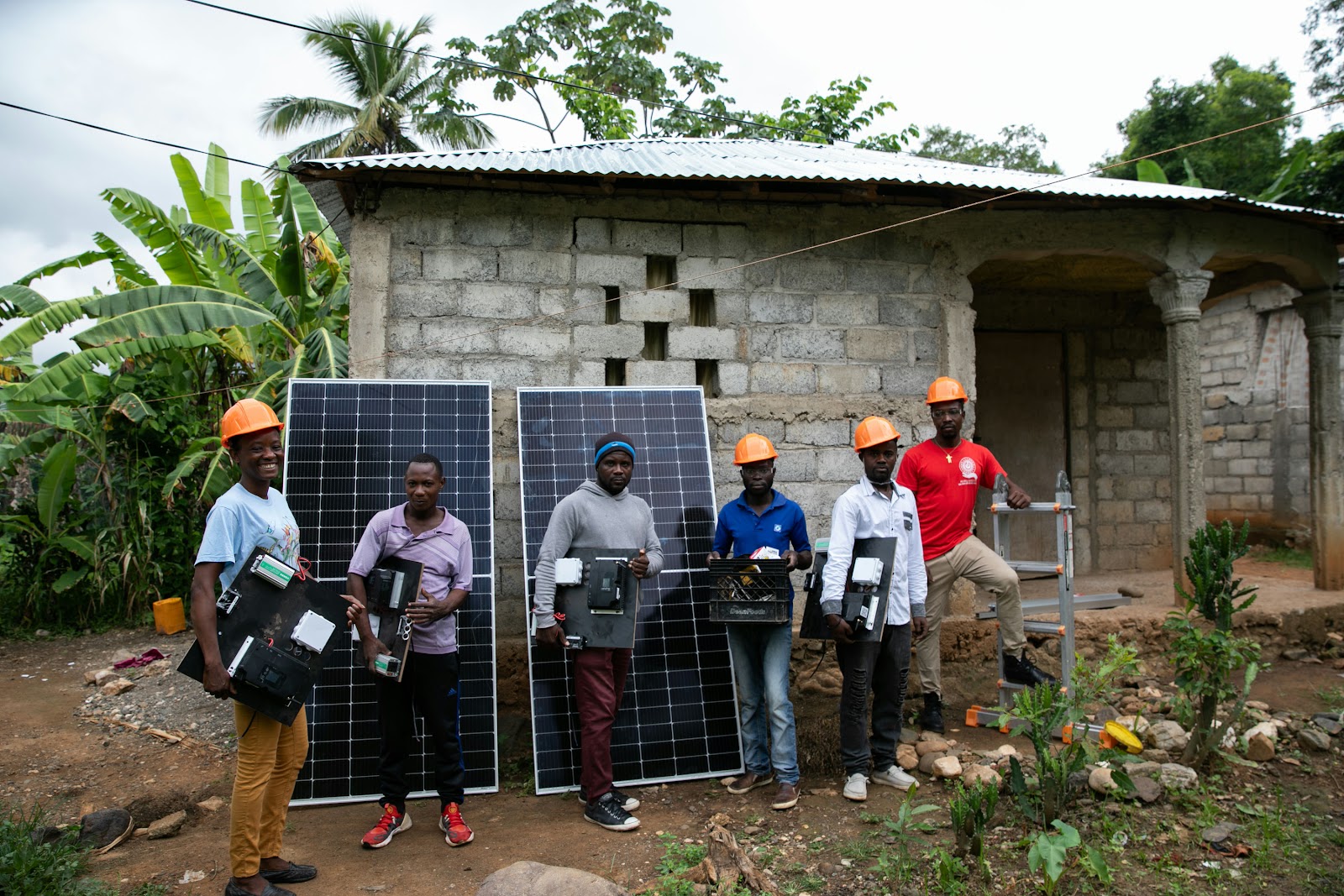
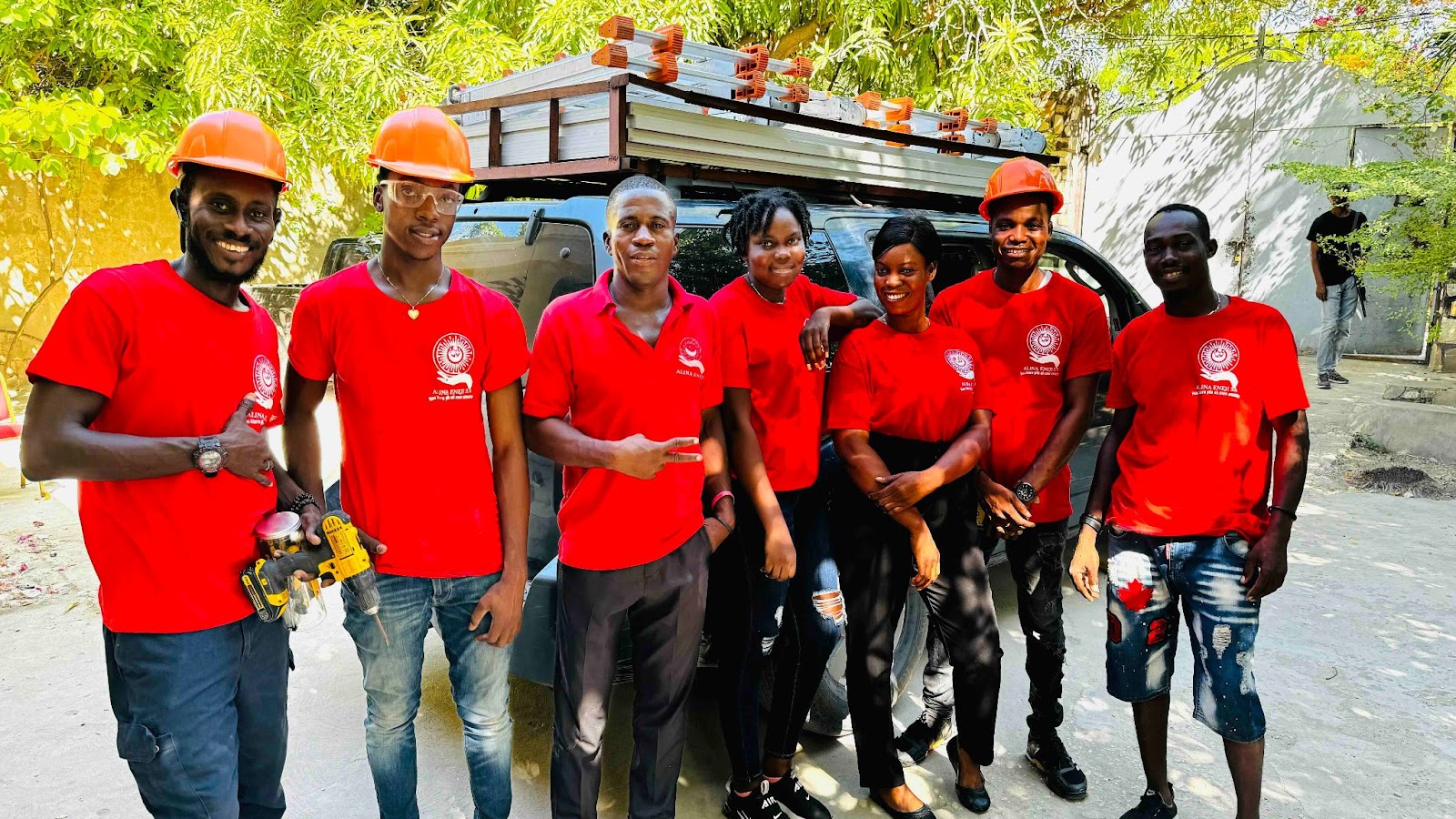
Furthermore, the conducting pre-assembly and commissioning processes within a warehouse environment has reduced the time needed for the teams to install out in the field, reducing complexity and time spent carrying out the work in hot environments.
Conclusion & Call to Action
The collaboration between Alina Eneji and Okra has resulted in a pioneering model for the off-grid electrification sector. This model has enabled Alina Eneji to maintain momentum in installations even amidst supply chain disruptions, such as the recent electrical wire shortage. This challenge, which could have halted the project, was overcome by Alina's innovative approach because it allows for the installation of other components while awaiting the arrival of wires, ensuring that progress is continuous and that downtime is minimized.
The benefits of Alina's installation model extend beyond the current project. This approach is scalable and there are many lessons from this that can be taken to other communities within Haiti and in international markets, such as Nigeria. This has the potential to significantly accelerate not only Alina's mission, but energy developers worldwide in providing reliable and affordable energy access to all.
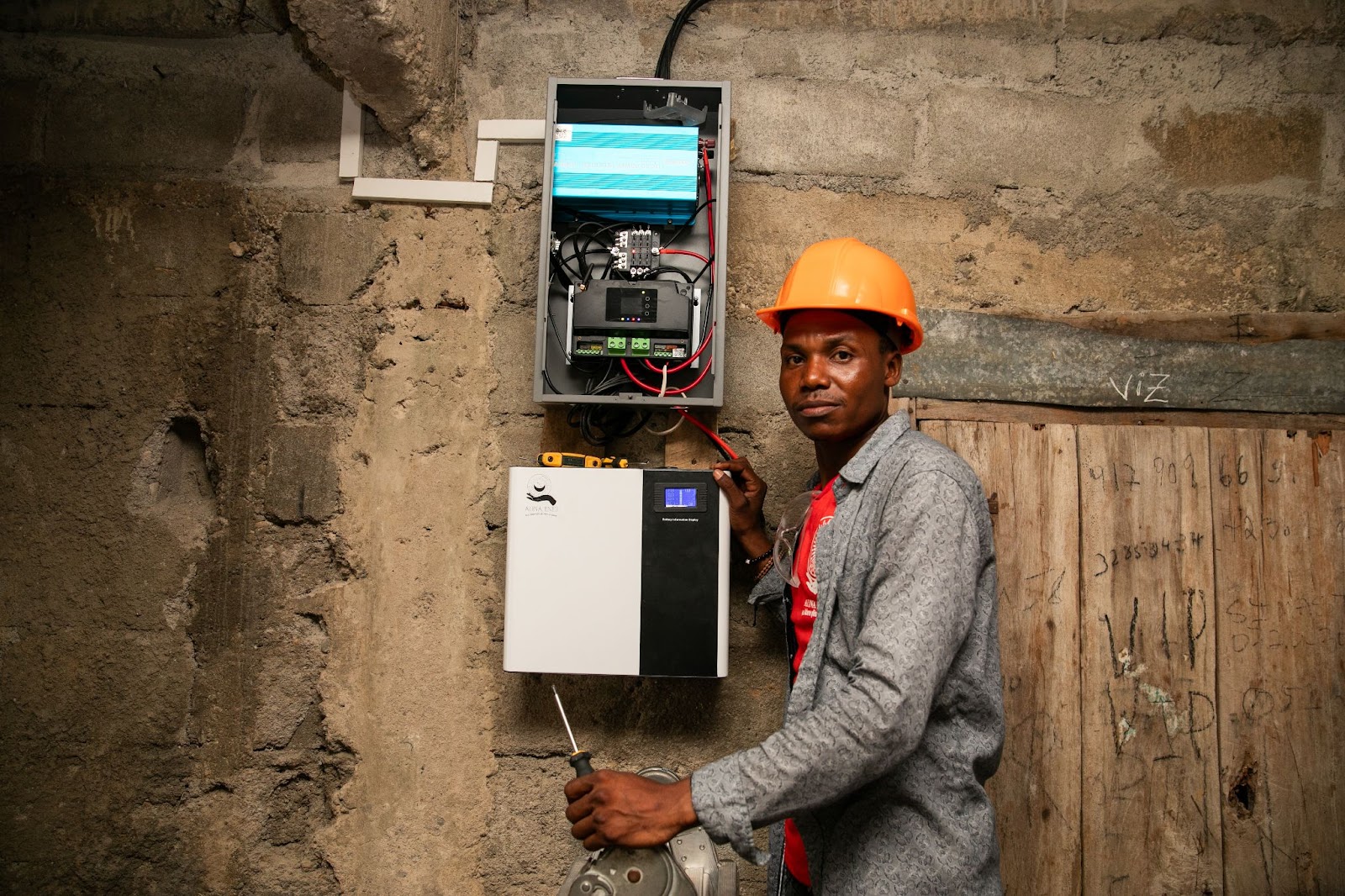
“We are committed to bringing power to as many people as possible in Haiti. I am confident that our deployment model will allow us to reach many communities in the shortest possible time frame.” - Driko Ducasse, Founder & CEO - Alina Eneji.



